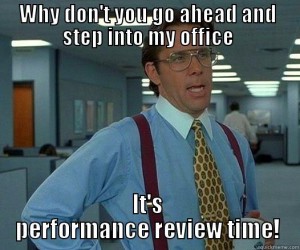3D Printing: Consumer Revolution?

In this Forbes article, columnist Freddie Dawson discusses the topic of 3D printing and raises questions about how disruptive the technology really is. As Clayton Christenson has stated many times, a core tenet of an innovation being disruptive relies on its price point and accessibility; 3D printing has existed for a while, but it is starting to make headlines nowadays because of its continually decreasing price point (thus, expanding accessibility). The technology is still not cheap and can only make smaller objects using very specific substances (which is why there is controversy surrounding its level of disruption in the near-future), but one cannot deny that there is huge potential for disruption in the long-term future. Optimists in the business world are referring to this inevitable future as the “Consumer Revolution”, a time period in which the 3d printer will become a standard household object enabling the creativity in entrepreneurial individuals to produce almost any object they can think of, of any size and substance.
Questions to consider:
- If owning an affordable and versatile 3d printer is an inevitable reality, how disruptive do you think this will be to the retail, supply chain, and manufacturing sectors?
- Will 3D printing never become that disruptive, only becoming an alternate means of production?
- If users are able to “download” and “print” physical objects that normally would need to be shipped, do you think this could disrupt the online retailing industry and big-name giants such as Amazon?
- Some, including myself, would interpret this as owning the means to production, something that has always been privatized by large corporations in capitalism. With a more communistic foundation behind the technology, will this have adverse affects on capitalism in general?
- Furthermore, with the United States’ reliance on Eastern countries such as China for cheap labor and production, how do you think 3d printing could affect east-west relations and the global economy?
Regulatory Disruption
So I found this interesting article by Ron Klain, a high level aid in both the Obama and Clinton administrations. The article tackles start-ups up coming battle with regulators in Washington. As we discussed disruptive innovations in class one of the topics we touched on was the affect of laws on businesses. The upcoming debates in Washington have large ramifications in multiple industries. Some proposals run the risk of completely killing industries that are trying to get of the ground (like drones, and financial technology). Other possible laws in regards to privacy/cyber security and medical devices see new regulations of possibly exploding a new start-up craze.
http://techcrunch.com/2015/03/22/the-regulatory-fault-line-for-startups-moves-to-washington/
Here is the link to the article. What do you see happening in these fields? Are drones our future or are they too risky? Or after all the recent hacking headlines will the government crackdown and open a large cyber security market?
9 Things You Should Tell Your Boss At Your Next Performance Review
I read an article in Forbes that talks about 9 things you should tell your boss at your next performance review. Forbes asked 9 entrepreneurs from the Young Entrepreneur Council what they wish their employees would tell them at their next performance review.
1) What makes you happy
2) How you want to grow
3) What you would like to work on
4) How you picture the future
5) How do you want to contribute to the company’s success
6) What you need to do for your best work
7) Which new technologies would work a lot better
8) What you want your boss to stop doing
9) What is not working, and how to make it better
These questions will help you in your next performance review with your boss and it shows you are dedicated to the success of the company and it also shows you are a dedicated employee. These questions will also help your boss become a better leader.
What do you think about this article and these questions? Do you think these questions should be answered by your boss after you have been with the company for a couple of years?
http://www.forbes.com/sites/dailymuse/2014/03/12/9-things-you-should-tell-your-boss-at-your-next-performance-review/
Autonomous Attack Aircraft

For my disruptive innovation case I had the topic of autonomous vehicles. In an article I found on justsecurity.org, Michael Horowitz and Paul Scharre discuss three areas of concern related to fully autonomous aircraft. First area of concern is related to accountability. If autonomous aircraft fail to do their job properly, who’s at fault? Another issue is the off-loading of moral responsibility for killing, which could lead to unnecessary deaths. Finally, if an autonomous aircraft became out of control, there could be serious damage inflicted to innocent people or casualties to friendly fire. Because of these concerns, many people advocate a level of human control over these aircraft because humans can make better informed decisions for a particular situation. Because of this, there is a debate over what is the right amount of autonomy and human control.
How much human control do you think is necessary and what functions should be autonomous in an attack aircraft? Or, do you think it is possible to have a fully autonomous attack aircraft? If yes, how would you mitigate the concerns mentioned above?
CareCam Health Systems and Mobile Health Monitoring
After hearing the disruptive innovation case on mobile health monitoring, I found this article about a company I interned for called CareCam Health Systems. CareCam is a company out of Conshohocken, PA that has developed a mobile healthcare application that is intended to improve the care and health of people with chronic health conditions. This application allows physicians to create care plans for patients to follow during their day. It also utilizes video and still images so that physicians can verify that patients are following their care plans. This application also sends out alerts to care managers and physicians if patients don’t complete certain care plan activities at their designated times or if their health is trending the wrong direction. Hal Rosenbluth, Chairman and CEO of CareCam Health Systems, believes that if this application is properly utilized, people with chronic diseases would have better overall health, which would reduce doctor visits, which would in turn save people money. Recently CareCam received a $2.4 million investment from IBC and this application is set to go live in April of this year.
Do you see this application as a disruptive innovation in the health care industry? If so what parts of the industry do you see it disrupting? If you don’t see it as a disruptive innovation, where do you it fitting into the industry? What other areas in health could this application be utilized for in the future? For example, CareCam could also further develop the application to be used to monitor clinical trials of pharmaceuticals.
Can a Culture of 100% Honesty Work?
I thought this article was interesting, especially in light of the discussion of performance reviews yesterday. It looks at a few different companies and their initiatives toward creating completely honest and transparent workplaces. A survey by 15Five indicates that 85% of employees are unsatisfied with the quality of communication at work. On top of this, 81% of full-time U.S. employees would rather join a company with open communication over companies that offer perks such as top health plans and gym memberships.
New York Computer Help
-Joe Silverman (Owner) says “Our motto is total transparency, and I strive to promote this from the staff level through the customer.” Silverman enforces this by dismissing employees on the spot who start to cut corners, or withhold information from customers.
-This honesty is also important in terms of training: “Any time a repair comes in, we ask who hasn’t done this before. Whoever says no gets a crash-test training how to do it.”
Quirky
-Chief People Officer Rochelle DiRie distinguishes between transparency and honesty by saying “Transparency is the surfacing of data and events; honesty is about your interpretation and desires.”
-Both transparency and honesty are strongly enforced at Quirky from senior management down, and are also included in the company’s core values. This mentality also includes never hiding bad news. “We ask our employees to always state their opinions, even if controversial.”
How important do you guys think honesty and transparency in the workplace are? Are there scenarios where withholding bad news is the better choice?
Convincing Skeptical Employees to Adopt New Technology
 As MIS majors, understanding the value of new technologies and being able to adapt to them is something that we take for granted. However, within the workplace there is often complacency among employees with existing technology and even hesitancy/fear to acquiring new products and systems.
As MIS majors, understanding the value of new technologies and being able to adapt to them is something that we take for granted. However, within the workplace there is often complacency among employees with existing technology and even hesitancy/fear to acquiring new products and systems.
https://hbr.org/2015/03/convincing-skeptical-employees-to-adopt-new-technology
In a study by MIT Sloan Management Review, 63% of managers said that the pace of technological change is too slow, due to a lack of urgency and poor communication of the benefits of new tools. Rebecca Knight of Harvard Business Review offers managers some advice for overcoming these obstacles with their employees:
1) Choose Technology Wisely: Bear your teams interest in mind. “Functionality is critical, but so is user-friendliness.”
2) State Your Case: Put forth a compelling vision of what the technology is and what it’s going to do.
3) Customize Training: Training efforts should reflect differences in familiarity and interest in technology; don’t be afraid to ask them what they want in a training.
4) Get Influencers Onboard: Create a “Network of Champions” fully invested in the new technology.
5) Make it Routine: “Implicity raise the cost of not using the new technology,” so they’re pushed towards routinely using the new tools.
6) Highlight Quick Wins: Draw attention to positive impacts.
7) Make it Fun: Reward the behavior you want to see (i.e. compensation, perks, recognition etc.)
8) Consider Penalties: Possibly penalize resistors for non-use.
With Windows 10, Your Face Will Be Your Password

http://techcrunch.com/2015/03/17/your-windows-10-password-will-be-your-face/#9tKYA4:KAm2
With Windows 10 right around the corner, Microsoft just Windows Hello. If your computer has the right hardware (being Intel’s RealSense camera), your login password can be your face. It will also be used to unlock a number of online services and applications that are linked to your account. It’s not clear as to how accurate or secure this will be (i.e. What if I just print a picture of a person’s face? Would that allow me to sign in?). If done right, though, then this will probably be a popular and secure feature.
While this in particular may not be disrupting any markets (it’s just a password), it gives a glimpse into how this sort of technology will change the way we access hardware and software, and has great implications for the security industry. For example, imagine if this technology were used in order to gain access to your home. There would be a camera at your door, and the door would unlock only if it recognized your face as being a resident of the house. By bring Microsoft Hello to computers, it will help spread awareness of autonomous technology and the benefits of it.
What do you guys think about this? Is this a good or bad idea? Can you think of any other autonomous technologies could be effectively implemented on personal computers? I personally think this can be a good thing if Microsoft is able to make the software really smart at detecting actual faces from fake ones. However, I don’t think it makes sense to make your face the password. It would make more sense to have your face be the username, or at least a security measure to gaining access to your username.
Deloitte Replacing Performance Evaluations With Four Simple Questions
According to The Washing Post, “Research shown to be ineffective, unreliable and unsatisfactory for seemingly everyone involved. They consume way too much time, leave most workers deflated and feel increasingly out of step with reality.”
Deloitte has redesigned its whole performance management plan and how it will evaluate its employees. Deloitte’s is getting rid of nonsensical attempts to build similar goals for everyone in the organization. The company also noticed they were spending two million hours each year assigning numerical ratings to each employee so they got rid of that too.
Overall, Deloitte is replacing its old performance system with four engaging questions they are asking managers to look at instead. Washing Post stated, “At the end of every project, or once a quarter if employees have long-term assignments, managers would answer four simple questions — and only four. The first two are answered on a five-point scale, from “strongly agree” to “strongly disagree;” the second two have yes or no options:”
1. Given what I know of this person’s performance, and if it were my money, I would award this person the highest possible compensation increase and bonus.
2. Given what I know of this person’s performance, I would always want him or her on my team.
3. This person is at risk for low performance.
4. This person is ready for promotion today.
This new performance allows how to develop employees in the future based on their performance.
Based on this article/post, do you think organizations should start following this new approach? Would you prefer to be evaluated on these questions or have a standard performance evaluation review? Why?
http://www.washingtonpost.com/blogs/on-leadership/wp/2015/03/17/deloitte-ditches-performance-rankings-and-instead-will-ask-four-simple-questions/
Uber and Self-Driving Cars
After reading the post “Cars You Drive Will Eventually Be Outlawed”, I noticed an article about Uber and self-driving cars. In class, we talked about Uber as a disruptive innovation when it comes to current taxi services. When I did my research on autonomous vehicles, this idea that current cars could be taken off the market completely was very real possibility; current cars and self-driving cars will not be compatible on the road together.
In this article, Uber’s technology leaders have started to working with Carnegie Mellon University’s National Robotics Engineering Center to research “areas of mapping and vehicle safety and autonomy technology”. Uber is making a smart decision by investing in this technology because self-driving cars will become the new taxis.
Since Uber is investing in this technology, it will be faced with new challenges. While we as consumers use Uber because it is convenient the company has recruited drivers by saying drivers can get rich. But, within the past year Uber has faced several lawsuits from its independent contractors or “drivers”. In my opinion, Uber will probably heavily invest in self-driving cars to eliminate this problem. The article also mentioned that Google may create a taxi service similar to Uber since it is also heavily investing in self-driving cars.
When Uber only has self-driving cars pick you up, would you continue to use Uber? Why or Why not? Would you start using Google’s taxi service instead? How do you think Uber will change its business model to compete with a huge company like Google?









Recent Comments